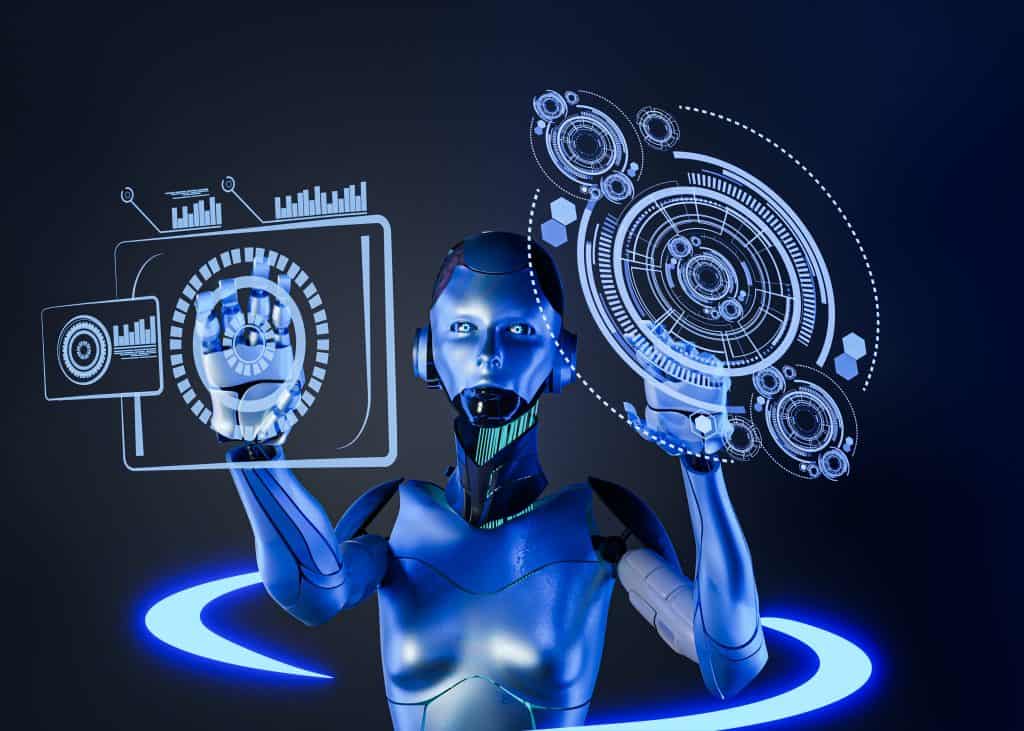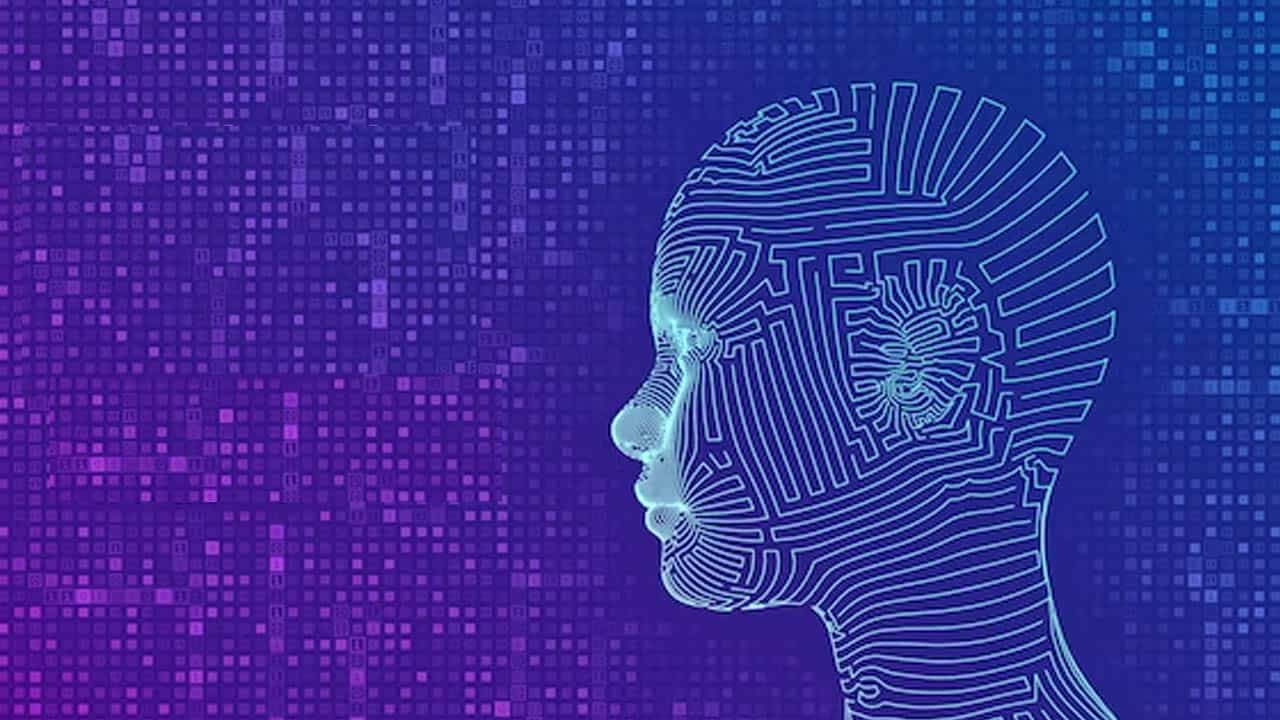Last updated on September 24th, 2024 at 03:43 pm
Artificial Intelligence In Education Marketing
In the ever-evolving artificial intelligence, or AI-driven economy, harnessing the power of artificial intelligence (AI) for education marketing is becoming increasingly important. AI-powered technology can help streamline marketing processes in education/edtech businesses, help save time and money and increase customer engagement and conversion rates. This concise guide will explore the potential of AI-powered marketing for the education/edtech industry, providing insights on how to boost content outcomes.
(1) Types of AI Applications
AI applications are designed to mimic human behaviours and actions, and automate various processes. Some examples of such tools in education marketing include automated customer segmentation, automated targeting strategies, AI-based content creation, and AI-powered recommendation engines, made up of technologies such as machine learning, natural language processing (NLP), computer vision and chatbots.
Machine learning is used to identify patterns in data and make predictions based on those patterns. NLP is used to interpret language inputs, understand the context, and generate meaningful responses. Computer vision is used for image recognition and video analytics.
(2) Benefits of AI in Education Marketing
The potential of AI, or artificial intelligence in education marketing is undeniable. By leveraging AI, marketers can achieve remarkable results in terms of efficiency, cost-effectiveness, and impact. Let’s take a closer look at the benefits of AI in education marketing.
These new AI-driven technologies can be used to automate mundane, repetitive tasks, such as data etntry. They can also be used to target the right audience, deliver personalised content, measure the effectiveness of campaigns, and analyse data which helps to identify trends and opportunities in the market. This frees up valuable time that can be used to focus on more creative and strategic initiatives.
AI-Powered Content Process
No doubt, AI has been transforming the education landscape. AI-powered content creation has become a powerful process for the modern education/edtech marketer.
(1) AI-Powered Systems for Content
1.1 AI Content Analysis
AI-powered analytics is an increasingly important tool for education/edtech businesses to gain insights into the daily lives of customers, such as customer preferences, buying patterns, behaviours, interests, and needs, optimise performance, and make informed decisions.
AI-Based Text Analysis
One of the techniques used in AI content analysis is AI-based text analysis, a process used to extract meaningful insights from large amounts of unstructured text data, and can be used to measure customer sentiment, allowing education/edtech businesses to identify patterns and trends, detect potential risks and opportunities, identify customer sentiments, and understand the impact of their products and/or services on customers.
This data can then be used to adjust strategies and personalise customer experiences.
1.2 AI Content Segmentation
All these analytics can help in customer segmentation, allowing us to divide our target audience into different segments and better understand their needs, so that we can develop AI-driven content that is tailored to each segment.
This can have a significant impact on the effectiveness of a campaign, as it allows marketers to deliver messaging more in tune with the needs of the intended audience and help them save time and resources by automating the segmentation process.
How Can You Leverage AI to Target Potential Students?
Let’s take a look at how to leverage this AI technology to target potential students, which is mostly the main audience of education/edtech businesses.
When it comes to targeting, AI can be used to identify, segment, and target potential students more effectively and accurately than ever before. AI can also be used to analyse data to identify key trends and patterns, allowing marketers to make informed decisions regarding their targeting efforts.
AI-driven targeting can be used to identify potential students with specific interests, goals, and needs. Marketers can then create personalised campaigns that are tailored to these individuals and deliver content that is more likely to resonate with them.
1.3 AI Content Personalisation
We can then automate the personalisation process by using AI-based personalisation. AI is able to take into account different customer attributes such as location and past interactions to deliver highly personalised experiences. This helps ensure that the content a customer receives is relevant and tailored to their specific needs.
By leveraging these insights, marketers can create personalised content that resonates with the audience and these will likely result in content that are more engaging and successful and build long-term consumer trust and loyalty.
(2) AI-Powered Smart Content Creation
Next, education/edtech businesses can use AI tools that use NLP and machine learning algorithms to generate smart content for a variety of purposes, such as creating high-quality textual and visual content for marketing campaigns. Such a process can help education/edtech business owners and content marketers create tailored content at scale, quickly and accurately and helps in streamlining the entire marketing process.
(3) AI-Based Content/SEO Optimisation
AI content/SEO optimisation creation helps marketers optimises content for maximum impact, providing insights into optimal content length, keyword placement, and sentiment analysis to deliver content that is more engaging, effective, and optimised for better rankings and visibility on search engines such as Google, Bing and Baidu.

AI-Enhanced Advertising
AI-enhanced advertising is becoming more and more popular in education/edtech businesses today. It is a great way to maximise efficiency and target customers more accurately. There are five key aspects to this technology: automated ad optimisation, AI-based targeting, AI-content curation, AI-chatbot communication, and AI-analytics and insights.
Automated ad optimisation is the process of optimising ads through automated systems in order to improve efficiency and cost-effectiveness. AI-based targeting helps identify customers by leveraging machine learning algorithms to better target potential customers.
(1) Automated Ad Optimisation
Picture this: Ads that can learn from the responses, automatically optimising themselves to better serve your audience. With automated ad optimisation, this is now a reality. AI-powered technology can take the guesswork out of marketing campaigns, allowing education/edtech companies to focus on the core of their business. AI-based algorithms can be used to personalise ads and deliver them to the right people, at the right time, in the right place. This can increase the effectiveness of ads while reducing wasted ad spend. AI-based systems can also continuously monitor ad performance, making real-time adjustments to ensure maximum impact. In this way, AI-powered automated ad optimisation can revolutionise the way companies reach their audiences.
(2) AI-Based Targeting
Having discussed the role of AI-powered analytics in advertising, we now turn our attention to AI-based targeting. With AI-enhanced targeting, education/edtech businesses can optimise their ad campaigns to deliver the most relevant message to the right audience at the right time. By leveraging AI-driven algorithms, they can accurately assess user preferences and interests, helping them to create highly-targeted ads with better targeting accuracy and reach. AI algorithms also allow businesses to continually refine their targeting, by continuously analysing user data and adjusting ad campaigns accordingly. This ensures that their ads remain as effective as possible as they are able to stay ahead of user preferences.
AI-Automated Performance Measurements
By utilising such AI-based insights, education/edtech businesses can also create automated performance measurements, easily track their success on a daily, weekly or monthly basis. They can monitor key performance indicators such as customer satisfaction, sales, revenue, cost reduction and more. This allows for more informed decisions and a better understanding of their operations.
Data can be gathered from various sources, such as customer surveys, website analytics, customer feedback forms, and other sources. This data is then analysed and used to drive performance improvement and identify areas of improvement.
Data can be gathered from various sources, such as customer surveys, website analytics, customer feedback forms, and other sources. This data is then analysed and used to drive performance improvement and identify areas of improvement.
AI-Enabled Communication
AI-enabled communication, such as chatbots, is revolutionising the way education/edtech businesses interact with customers. Chatbots, which are computer programmes that simulate human conversations, are becoming increasingly popular and a critical tool for customer service providers.
There are a wide range of chatbots available nowadays, which allow education/edtech businesses to send out messages quickly and effectively without needing human input. Such AI-powered chatbots can provide 24/7 customer service, using NLP to interpret customer queries and provide tailored responses in real-time. This AI-powered conversational interface can bring customer service to the next level, offering an interactive and intuitive experience for customers.
Implementing AI in Education Marketing
Choosing the Right AI Solution
When it comes to implementing AI in education marketing, it is important to choose the right AI solution that can effectively help your business meet your objectives. To start, it’s important to understand the various types of AI software available on the market. Education/edtech companies should consider their goals and then select a solution that best fits their needs. It’s also important to consider the level of integration and automation available with the solution. They should look for a solution that is easy to use and also thoroughly research the service provider’s experience and expertise.
Once the solution is chosen, it is important to develop an implementation strategy to ensure that the solution is used to its full potential. This includes creating targeted content that engages with the target audience and using automation and AI tools to make the process more efficient. Lastly, personalising content with AI can help to create an even more engaging and effective experience for the audience.
Measuring the Success of AI Initiatives
Measuring the success of AI initiatives requires setting goals and objectives, analysing performance, leveraging AI for targeting, exploring new AI opportunities, and integrating AI into existing strategies.
First, it is critical that education/edtech businesses set clear goals and objectives to measure progress and success. Next, performance should be tracked and analysed to determine if the initiatives are achieving desired results. Third, AI can be leveraged to create more accurate targeting for marketing campaigns, improving ROI. Fourth, education/edtech businesses should explore new AI opportunities to improve processes and initiatives and stay ahead of the curve.
Conclusion
The use of AI, or artificial intelligence for education marketing is becoming increasingly popular. From AI-powered content creation and personalisation, to AI-driven analytics and advertising, there are numerous ways to harness the power of AI in the education/edtech sector. When it comes to implementing AI in education marketing, it is important to measure the success of the initiatives, in order to ensure that the desired outcomes are achieved. With the right strategies in place, AI can be a valuable tool to help optimise and maximise the efforts of education marketing.
Get Started Here!
If you find yourself constantly struggling with limited time and manpower for your education/edtech business, let’s have a chat about optimising the use of your existing content resources and/or creating new content to help your company attain optimal results. Reach out to me at +65-9622-8824 or bei@beithoven.com, and let’s explore how we can collaborate to develop a successful content marketing strategy for your business.
Bei, a bilingual (English/Chinese) Singapore content strategist, has over 20 years of experience in marketing for small businesses. She mostly writes about visual storytelling, AI art, SEO, social media and China marketing.

